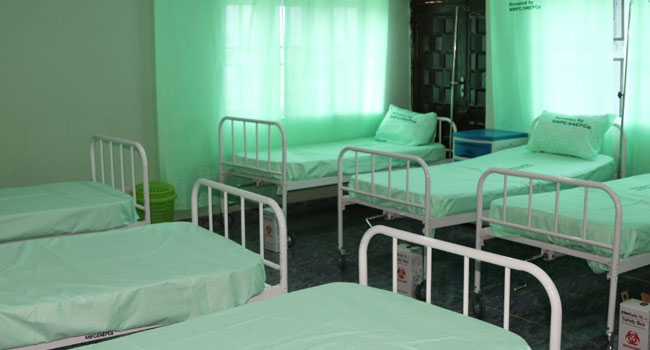The Edo State Government has recently reported a case of Mpox and is currently investigating eight suspected cases of cholera, signaling a dual health threat that has captured the attention of public health officials and residents alike. Dr. Ojeifo Stephenson, the State Director of Public Health at the Ministry of Health, made this disclosure during a briefing with news correspondents on Saturday, outlining the steps the government is taking to manage these outbreaks and prevent their spread.
Since the start of the year, Edo State has been vigilant in its efforts to monitor and respond to potential health crises. Dr. Stephenson highlighted that the state government had already initiated proactive measures to raise public awareness about these diseases. “From January till date, we’ve identified 11 suspected cases in Edo State,” Dr. Stephenson revealed. “We get alerts whenever there is any suspected case. Our response team is immediately mobilized to the scene to collect samples and initiate contact tracing.”
 Contact tracing is a critical component of the state’s response strategy, focusing on individuals who have had direct contact with suspected cases. This process involves monitoring these contacts for the incubation period of the disease, which allows health officials to contain the spread effectively. Dr. Stephenson noted, “Contacts are people who have a direct connection with the suspected case. We always follow them up throughout the incubation period of the virus, and after careful observation and testing, they are either exited from the monitoring process or continue to be observed.”
Contact tracing is a critical component of the state’s response strategy, focusing on individuals who have had direct contact with suspected cases. This process involves monitoring these contacts for the incubation period of the disease, which allows health officials to contain the spread effectively. Dr. Stephenson noted, “Contacts are people who have a direct connection with the suspected case. We always follow them up throughout the incubation period of the virus, and after careful observation and testing, they are either exited from the monitoring process or continue to be observed.”
The results from these monitoring efforts in Edo State have shown that out of the 11 suspected Mpox cases identified, eight were confirmed positive. The news of these confirmed cases has prompted the state government to intensify its public health campaigns, urging residents to report to the nearest designated health facilities if they notice symptoms related to Mpox or cholera. These symptoms include fever, rash, and swollen lymph nodes for Mpox, and diarrhea, vomiting, and severe dehydration for cholera.
Mpox: A Growing Concern for Young Children
Mpox, formerly known as Monkeypox, is a zoonotic viral disease that has been spreading across Nigeria, with young children being particularly vulnerable. According to a recent report from the Nigerian Centre for Disease Control (NCDC), children between the ages of 0-5 years old are the most affected by Mpox in the country. This year alone, Nigeria has recorded 48 confirmed cases of Mpox, with the majority of these cases occurring in young children. The ease with which Mpox spreads through direct contact with infected individuals or contaminated materials has raised significant concerns among health officials.
The NCDC’s update report for week 34 (August 19-25) indicates that eight new confirmed cases of Mpox were recorded across five states, bringing the total number of confirmed cases in 2024 to 48. This is a notable increase from the previous reporting week, where only one confirmed case was reported. Furthermore, a total of 57 new suspected cases were reported in week 34, compared to 25 in week 33. The rising numbers highlight the need for continued vigilance and public awareness campaigns to prevent further spread of the disease.
The report also shows that Mpox has been detected in twenty states, including the Federal Capital Territory (FCT), across thirty-five Local Government Areas this year. This widespread geographical distribution underscores the importance of a coordinated national response to address the outbreak and protect vulnerable populations, especially children who are at a higher risk of severe complications from the disease.
Suspected Cholera Cases: A Persistent Challenge
In addition to the confirmed Mpox cases, Edo State is also dealing with the potential threat of cholera, a highly contagious bacterial disease that can lead to severe dehydration and death if not treated promptly. Cholera outbreaks are often linked to poor sanitation and contaminated water supplies, making them a recurring public health challenge in many parts of Nigeria.
Dr. Stephenson noted that eight suspected cases of cholera have been reported in Edo State, with health officials working diligently to confirm these cases and implement control measures. “We are taking these reports seriously and have already begun necessary investigations to confirm the presence of cholera in these cases,” he said. “Our teams are on the ground, ensuring that proper sanitation measures are being followed and that affected individuals receive the necessary medical care.”
The state’s proactive stance in addressing these health challenges involves not only immediate response measures but also long-term strategies to improve public health infrastructure and sanitation. Governor Godwin Obaseki has emphasized the need for sustainable solutions to prevent future outbreaks, including investments in clean water supply systems and the establishment of more robust healthcare facilities across the state.
Government and Community Collaboration: A Path Forward
The dual health threats posed by Mpox and suspected cholera cases in Edo State highlight the critical need for ongoing collaboration between the government, healthcare providers, and the community. Public health education remains a cornerstone of the state’s response, with efforts focused on educating residents about the symptoms of these diseases and the importance of early reporting.
The state government is also working closely with federal health agencies, such as the NCDC, to ensure a coordinated and effective response. This includes sharing data on disease surveillance, participating in joint training programs for healthcare workers, and leveraging national resources to support local response efforts.
As Edo State continues to navigate these public health challenges, the commitment to safeguarding the health and well-being of its residents remains unwavering. By taking decisive action and fostering a sense of community responsibility, the state is setting a strong example of how to respond to emerging health threats and protect vulnerable populations. The hope is that through these combined efforts, Edo State will not only manage the current outbreaks but also build a more resilient healthcare system capable of withstanding future challenges.




